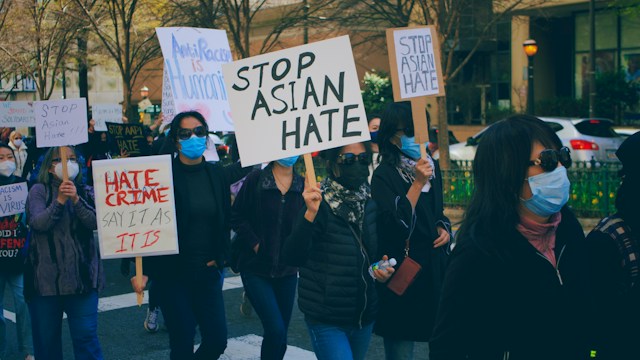 Recent statistics from the Federal Bureau of Investigation (FBI) and the Department of Justice paint a concerning picture of hate crimes in the United States. In 2022, there were 11,634 hate crime incidents, marking an increase from the previous year. These crimes, driven by biases based on race, ethnicity, religion, sexual orientation, disability, gender, or gender identity, reflect a disturbing trend in society. Notably, race-based crimes remain the most common, with anti-Black or African-American incidents being the most prevalent.
Recent statistics from the Federal Bureau of Investigation (FBI) and the Department of Justice paint a concerning picture of hate crimes in the United States. In 2022, there were 11,634 hate crime incidents, marking an increase from the previous year. These crimes, driven by biases based on race, ethnicity, religion, sexual orientation, disability, gender, or gender identity, reflect a disturbing trend in society. Notably, race-based crimes remain the most common, with anti-Black or African-American incidents being the most prevalent.
Specific Groups Targeted
The data shows a significant increase in hate crimes against specific groups. For instance, hate crimes against Asian and Pacific Islander communities more than doubled between 2020 and 2021. This rise in targeted violence against minority groups underscores the need for heightened vigilance and protective measures, especially in areas where these communities are prominent.
Businesses at the Crossroads
Businesses, particularly those located in diverse communities or those serving specific ethnic or religious groups, find themselves at the crossroads of this surge in hate crimes. Commercial establishments are often seen as extensions of the communities they serve, making them potential targets for hate-driven violence. This reality necessitates a reevaluation of security measures to protect both customers and employees.
The Role of Security Guards
In this climate, the role of security guards becomes increasingly vital. Trained security personnel can act as a deterrent to potential hate crime perpetrators. Their presence can provide a sense of safety and security to customers and staff, particularly in businesses that cater to groups that have been targets of recent hate crimes.
Beyond Deterrence: Active Prevention
Security guards can do more than just deter potential threats; they can actively prevent hate crimes. By being trained to recognize the early signs of a hate crime, they can intervene before a situation escalates. This proactive approach is crucial in preventing incidents that could lead to injury, loss of life, or property damage.
Building a Safe and Inclusive Environment
For businesses, the goal is not only to ensure safety but also to foster an environment of inclusivity and respect. The presence of security guards trained in cultural sensitivity and de-escalation techniques can contribute to creating a space where all customers feel welcome and safe. This approach is not only good for security but also for business, as it helps build trust and loyalty among customers.
The Financial Aspect
While the cost of hiring security guards is a consideration for any business, it must be weighed against the potential costs of a hate crime incident. These can include property damage, legal liabilities, and, most importantly, harm to human life. Investing in security can be a prudent decision to protect against these risks.
Conclusion
The latest hate crime statistics in the USA are a call to action for businesses, especially those in diverse communities or serving minority groups. Increasing the use of security guards is not just about responding to a threat; it’s about actively contributing to the creation of a safer, more inclusive society. As hate crimes rise, the responsibility of businesses to protect their patrons and staff becomes more pronounced, making the role of security guards more essential than ever.


